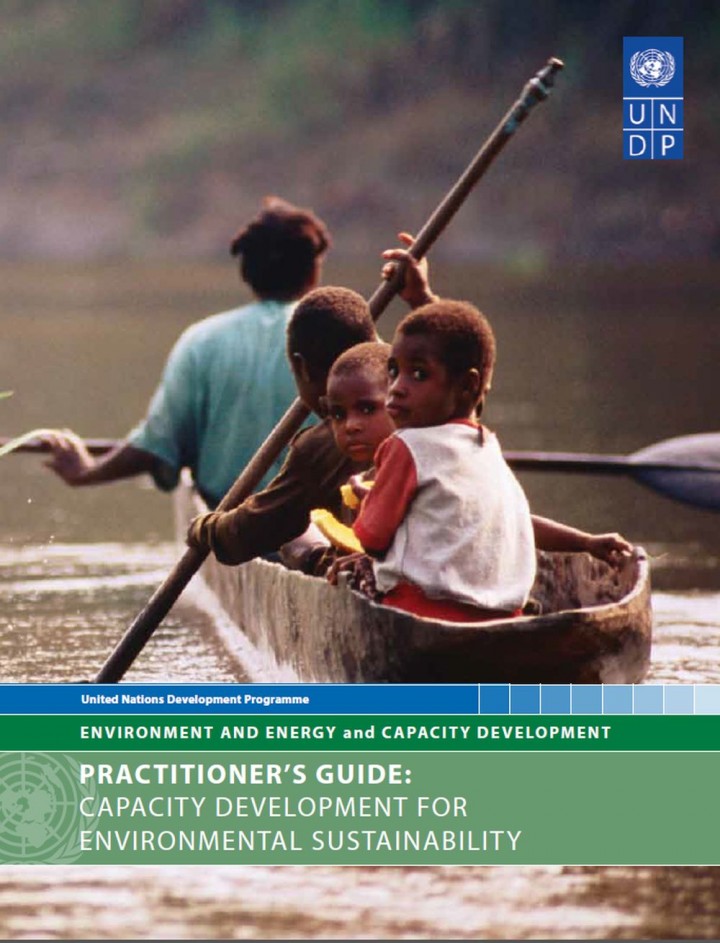
Published in: 2011
Pages: 110
Publisher:
United Nations Development Programme (UNDP), New York, USA.
Author:
UNDP
Uploaded by:
SuSanA Admin
Partner profile:
common upload
4607 Views
62 Downloads
Capacity development and environmental sustainability are both central to UNDP ’s mandate and programming. The purpose of this Practitioner’s Guide is to provide practical guidance to UNDP staff, partner countries and other development partners on the nature of environmental capacity and how to support capacity development for environmental sustainability (CDES ). The guide builds on UNDP ’s Practice Note on Capacity Development and Practice Note on Capacity Assessment and incorporates best practices from CDES experience to date. The main text of this guide presents the UNDP approach to CDES , including guiding principles, an analytical framework and a five-step process that can be adapted to various settings. Annex A provides practical tools to implement this approach, Annex B provides case studies, and Annex C lists references.
Capacity development for environmental sustainability is defined as the process by which individuals, organisations and societies strengthen their ability to address environmental issues, manage natural resource issues, and mainstream environmental sustainability into development policies, plans and decisions. To support the achievement of environmental sustainability, UNDP support to CDES may involve strengthening capacities within one or more of these three interrelated fields of activity:
Content - Summary
1 Introduction
1.1 What is Capacity Development for Environmental Sustainability?
1.2 T he Context for CDES
1.3 UNDP Mandate for CDES
1.4 C haracteristics of CDES
2 UNDP Approach to CDES
2.1 Guiding Principles
2.2 L evels of Capacity and Entry Points
2.3 E nvironmental Capacities
2.4 C ore Issues
3 Five-Step Process for CDES
Step 1: Engage stakeholders in capacity development
Step 2: Assess capacity assets and needs
Step 3: Formulate the capacity development response
Step 4: Implement the capacity development response
Step 5: Evaluate capacity development results
4 Programming Implications
4.1 UNDP Strengths in CDES
4.2 UNDP Programming for CDES
5 Lessons Learned: A Closer Look at the Core Issues
5.1 I nstitutional Arrangements
5.2 A ccountability
5.3 E nvironmental Leadership
5.4 Knowledge and Information
6 Conclusions
Bibliographic information
UNDP (2011). UNDP Practitioner’s Guide - Capacity Development for Environmental Sustainability. United Nations Development Programme (UNDP), New York, USA.
Filter tags
Capacity development (WG1) English Recommended by SuSanA (other than SuSanA publications)















